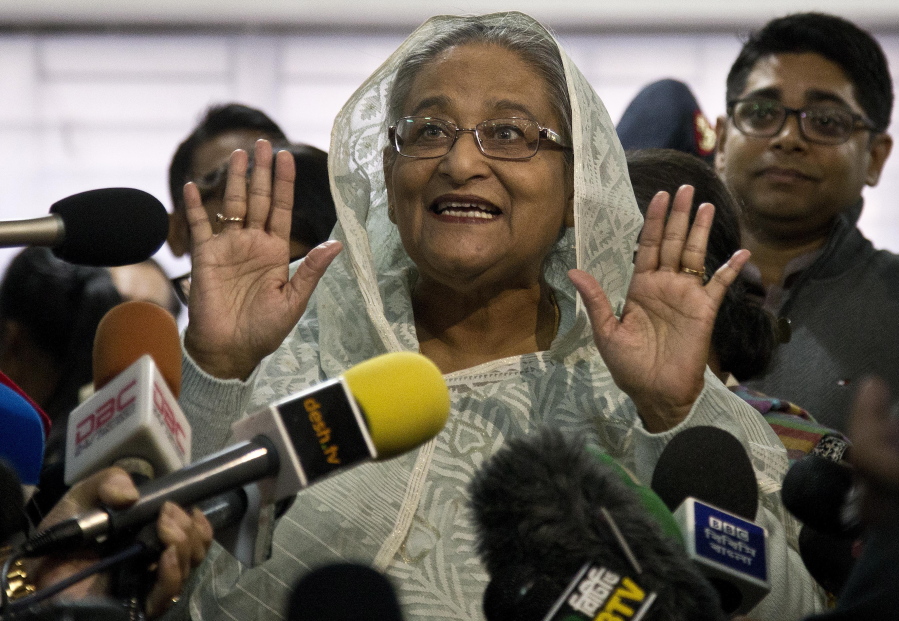DHAKA, Bangladesh — Voting was underway Sunday in Bangladesh’s contentious parliamentary elections, seen as a referendum on what critics call Prime Minister Sheikh Hasina’s increasingly authoritarian rule, amid complaints from both ruling party and opposition activists of attacks on supporters and candidates.
Hasina’s main rival is former Prime Minister Khaleda Zia, the leader of the opposition Bangladesh Nationalist Party, who a court deemed ineligible for the race for office because she is in prison for corruption.
The two women have been in and out of power — and prison — for decades.
In Zia’s absence, opposition parties have formed a coalition led by Kamal Hossain, an 82-year-old Oxford-educated lawyer and former member of Hasina’s Awami League party.
By 8 a.m. Sunday when polls opened, about 80 people had lined up to cast their ballot at a voting center in Dhaka’s Uttara Model Town area. Polling workers appointed by candidates showed Election Commission officials empty ballot boxes before the first paper ballot was cast. Awami League supporters had set up help desks on the street outside the polling station for voters to find their registration serial numbers.




